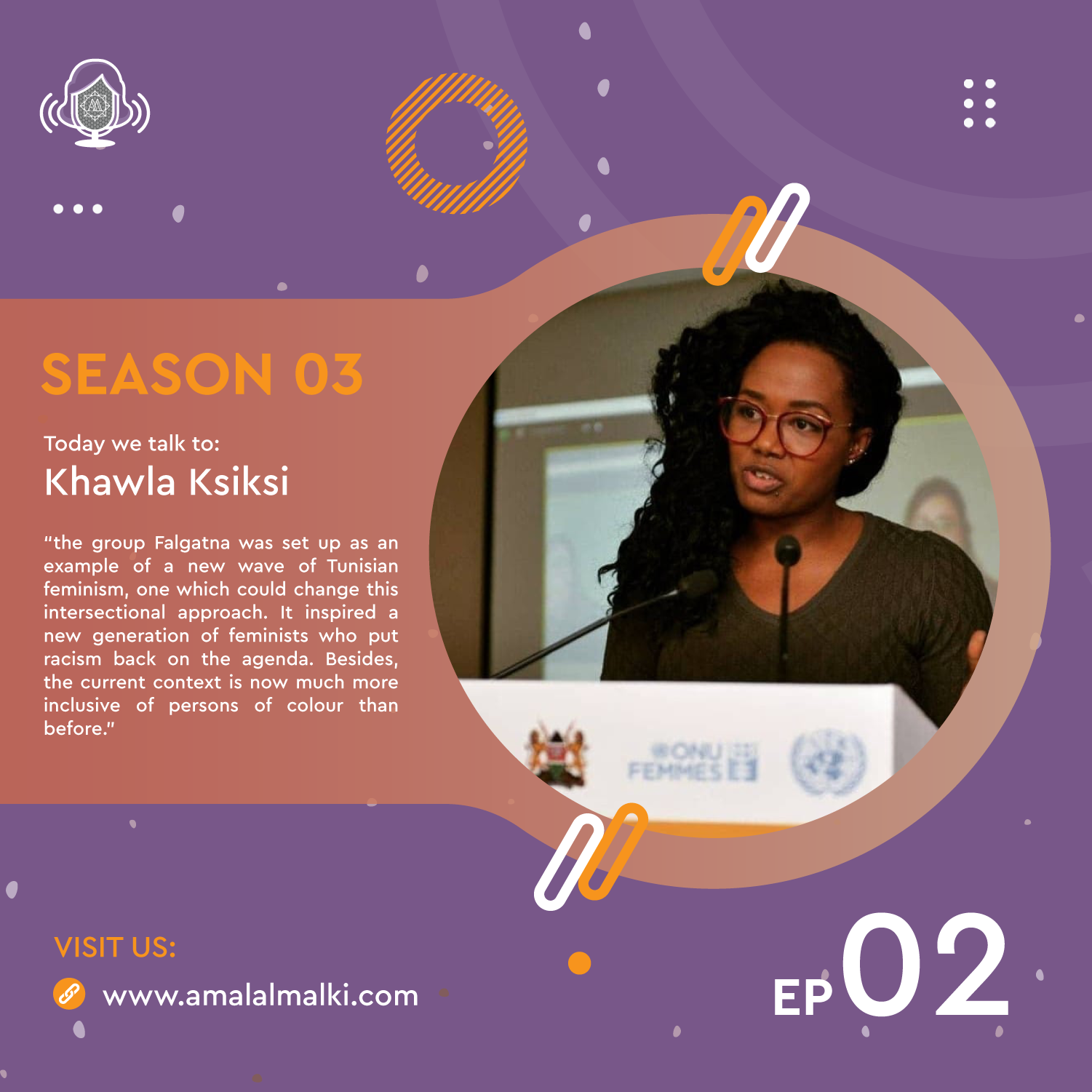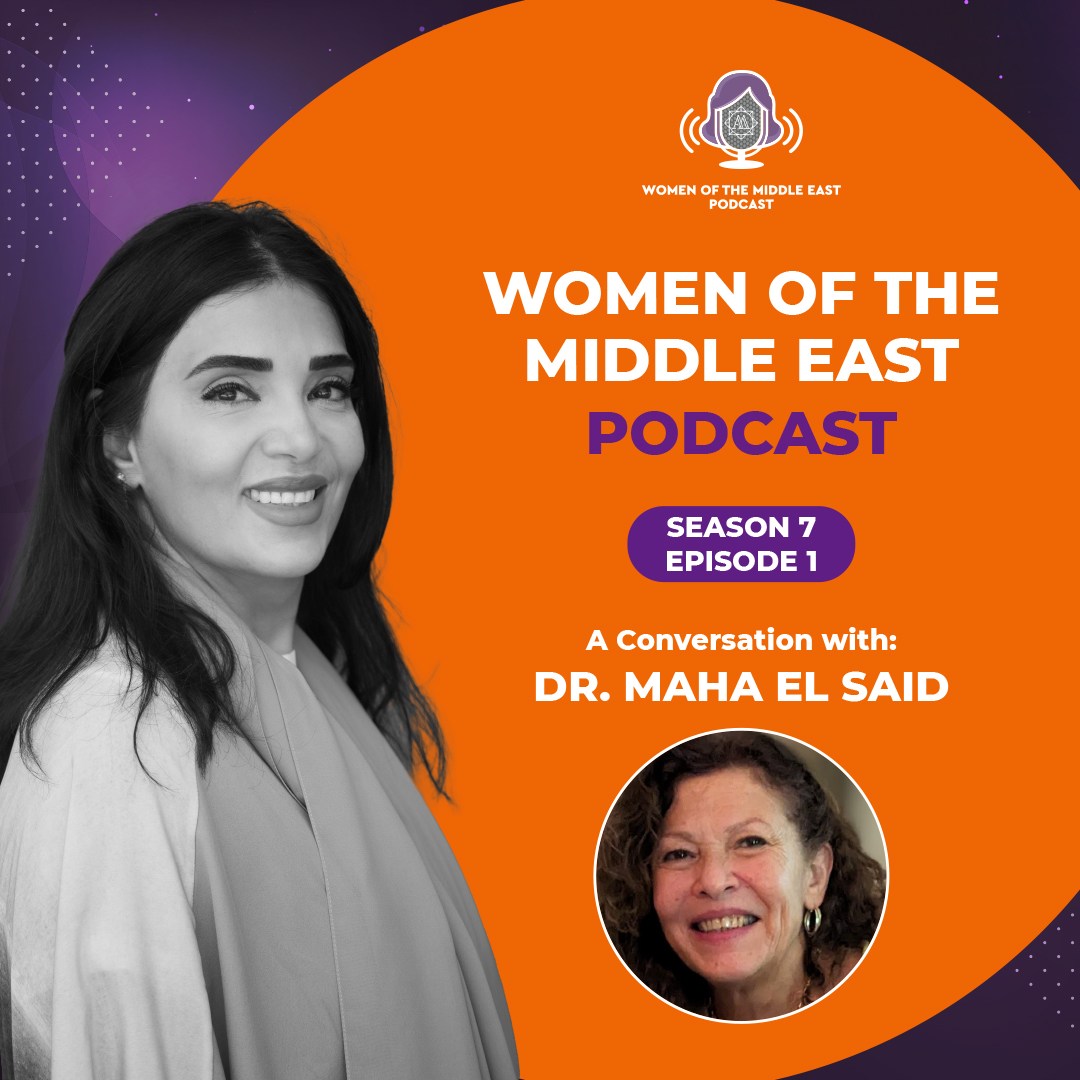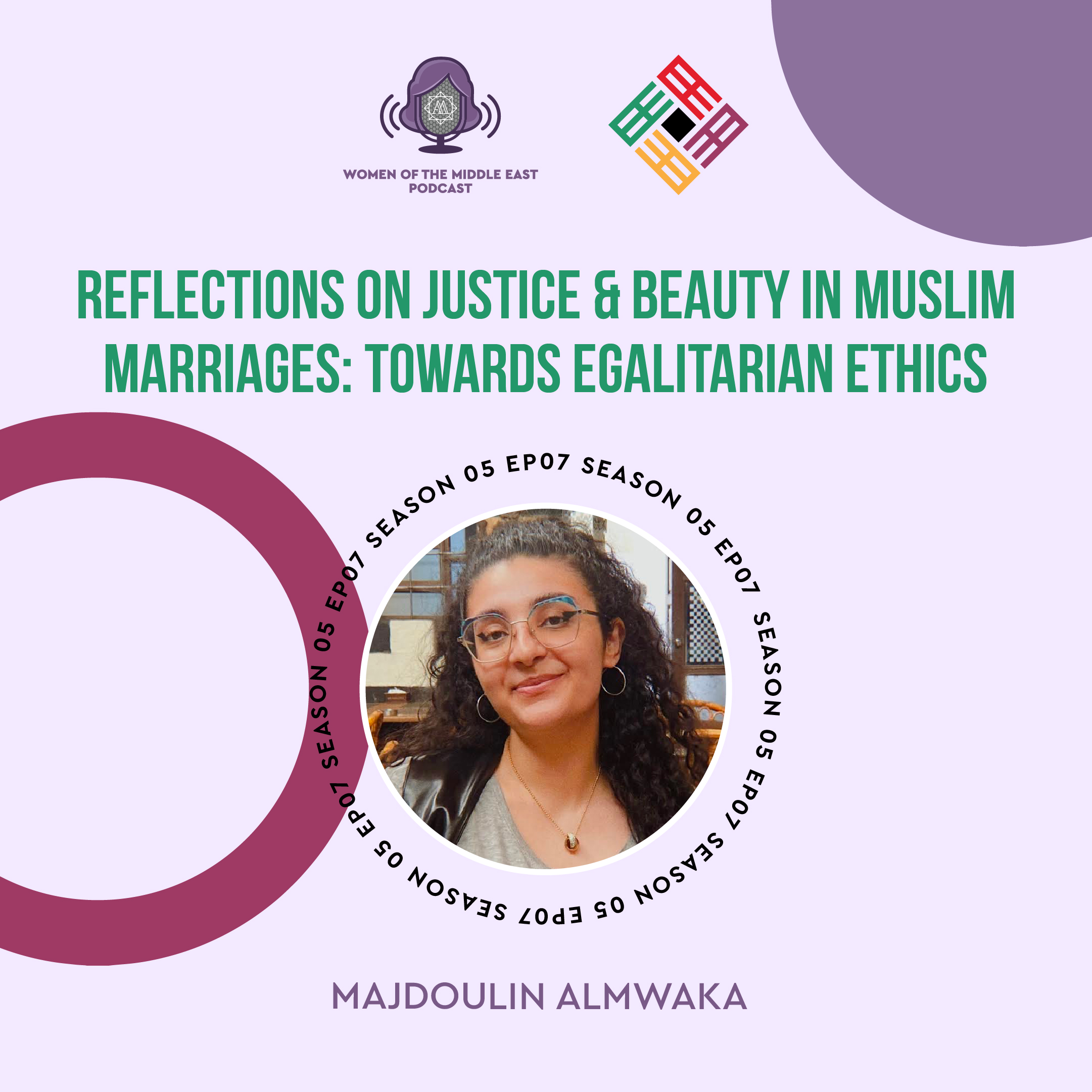Episode Transcript
[00:00:03] Speaker A: Hello and welcome to Women of the Middle east podcast, Women of the Middle east. This podcast relates the realities of arab women and their rich and diverse experiences. It aims to present the multiplicity of their voices and wishes to break overdue cultural stereotypes about women of the Middle east. My name is Amel Malki. I'm a feminist scholar and educator. This is women of the Middle east.
Hello and welcome to Women of the Middle east podcast. I'll be talking to palestinian women in and outside Palestine who are creating their own personal narratives about who they are as palestinian women and embedding it in their public narrative of the war in Gaza and more. Let's remember that palestinian women are victims of war, occupation and displacement, but they're also the doctors, the nurses in the hospitals, the mothers at home, the freedom fighters, the humanitarians, the journalists, the lawyers, the human rights activists, the singers, the actors, the movie makers, the poets, and much, much more. This short series of women of the Middle east podcast will be focusing on that, bringing palestinian women voices to all of you. Lin, lovely to have you. I know who you are, and I know you're very young. Future is still ahead of you, but you've accomplished a lot, even within the last 28 years. Tell me more about you.
[00:01:29] Speaker B: This is an amazing opportunity. My name is Lynn Al Faqi, 28 years old, palestinian Jordanian.
I have a master's in women and child abuse and a full time musician. So basically, the combination between my passion and my education degree is always interconnected in a way that also war and displacement is a type of abuse. So my thesis was about the benefits of music based interventions and work with abused children and specific refugees. And this was one of my main activities in introducing music as a psychosocial activity in refugee camps.
Knowing that basic needs is not the only needs that abused children and refugee children need. Also, supporting their talents is also a right for them.
This was my main interest in combining my passion and my education together.
[00:02:37] Speaker A: Do you think if Lean wasn't a young palestinian woman, you would be interested in this area?
[00:02:42] Speaker B: I think that to be a humanitarian doesn't need a specific direction because I'm palestinian. But I also want to support lebanese and syrian and every vulnerable children. Human rights isn't. Isn't for a certain nation, and for the other is knowing that abuse is abuse and human rights are human rights.
[00:03:06] Speaker A: When you construct a public narrative, it's always your personal narrative should be a part of it, too. As you said, we are all humans. We connect with each other on different levels, sometimes because we empathize, sometimes because we have gone through what others have gone through. But I do believe that when you understand the ordeal of people who have been displaced, when you understand what it feels like to be oppressed in your own country, when you live under a colonial settlement, as people in Palestine, this gives you an insight. But again, as a young palestinian woman who have gone through it, whose displacement and the fear of not being, belonging, not having a land, calling it yours, is imprinted in your DNA.
[00:03:58] Speaker B: So basically, knowing that I'm originally palestinian and I've never been there, and knowing the occupation and the actually story of Palestine, I think this idea encouraged me to try to find a way to build my identity. And through music, this happened. I'm a musician who combined music into being a voice for others. I grew up listening to Ruz and Julia Botros, Marcel Khalifa, and a lot of musicians who spoke and who actually supported the Palestinian, I was inspired while listening to them. And I discovered that this has boosted my palestinian identity. So I started to think, what can I give? Using my talent to distinguish myself? We have a lot of entertainers, and I don't think this is what we want nowadays. We want more people to be voices for others to speak the truth. Although this has a lot of restrictions, it's not that easy. I have to give up a lot of things, especially that I sing patriotic music, patriotic songs. I have a lot of people that are my friends who live in Gaza and in Palestine and Ramallah, and we became friends. And it makes me really happy to see that my message is being delivered and spoken, because I also got a lot of music deleted from Instagram and banned. And this means a lot. This means that even something simple can have a big effect. That's how I boosted my identity and also the volunteering experiences in refugee camps and my community. Living in Jordan, you never feel the difference between the palestinian and the Jordanian. So this community also helped.
[00:05:58] Speaker A: So Lin is a young palestinian singer who uses her powerful, and I have to say, powerful, amazing, beautiful voice as a form of resistance. And through this voice, you are delivering a message. Songs have been used in history, of course, as you said, to boost courage and enthusiasm and wars. Music is very important in bringing people together. Tell me more of how do you use your voice as a form of resistance?
[00:06:31] Speaker B: People might be not aware of the truth, but music for me, and arts in general are a form of resistance because it's a universal language. If you cannot understand the words, you can understand music.
For me, it's very easy to write things and just people ignore it. And maybe one song and one message. With the composition and the music, it makes people aware of the actual truth. Especially I'm with the patriotic music. I don't really encourage a lot of vulnerability in music. I don't want to show my people that they are vulnerable. They are not vulnerable. They are fighters. So patriotic music is actually what they do. They are resisting. They are not vulnerable.
[00:07:16] Speaker A: And this is why I thought about highlighting palestinian women, whether inside Palestine or outside Palestine, because there is a tendency now to depict the palestinian woman as vulnerable because of what's happening in Gaza. And yes, they are victims of the war, victims of the occupation in Palestine as a whole. But also, let's not dismiss women fighters. Let's not dismiss women writers, women feminists, women lawyers, women singers, women poets. There are many palestinian women who are also fighting in different forms. And this is why I wanted to capture those multiple narratives. And I'm happy, actually, to have the first read with you.
So you touched on how your identity as a palestinian woman was constructed through the songs that you've heard when you were young.
What about folk stories? Did your mom, your grandmother talk to you or recited the stories from Palestine? Folk stories.
[00:08:23] Speaker B: Honestly, the stories weren't just family oriented. Even my friends hearing other friends stories, even relatives and maybe strangers as well. I always try to attend communities that speak about Palestine. Also my humble experience in volunteering, hearing that refugees, refugees, women, and even men and children in the camps, hearing their stories and what happened to them, also educating myself in reading and even movies that spoke about Palestine. So this is how I created my awareness about it. So it's not just family oriented, it's the whole community around me.
[00:09:11] Speaker A: Lean as a woman.
How much of what palestinian women went through and their ordeal and the intergenerational trauma and the stories you've heard about and the stories that you went through as a palestinian woman, but also as a humanitarian. So you work with refugees. You've seen their ordeals. How much of that has shaped who you are as a woman?
[00:09:39] Speaker B: Honestly, it shaped who I am in terms of that. What I've seen in these women, that although the crisis that they've been through and the displacement and they are still willing to give, they still have dreams. There are a lot of talents in the refugee camp, especially by women, and this is how they do. They actually reflect their identity, especially through tatrias. And there are a lot of women who did brands out of them because it's very. It's valuable to focus about sustainability and women empowerment and also, like, boosting these women's talents. So I always faced women that are still willing to give. Still, they have unconditional faith, infinite faith. Iman Mutlak as they say, I've met a lot of women inside the refugee camp. I cannot forget this woman at all. She once said that she has only two daughters, and she wanted them to continue their education in universities. And she used to do pastries inside the camp and sell them inside the camp. And she actually finished two educational degrees for the two of her daughters. And she said if she had to buy a land, she would have bought it entirely. So whenever I saw these women speaking about how can, from the tragedy they live in, they actually empower us. I used to be empowered, and they helped me in thinking how to start my music career and how to establish a team and how to find the solution in every problem.
[00:11:26] Speaker A: I wish this focus and those lenses that are focused right now on Gaza continues after the war ends. Because right now, women all over the globe are connecting with gazan women just on the basis of being women, being mothers, daughters, sisters. Seeing those women go through loss, grief, with a sense of resilience and sense of faith that shakes you to the core, right? But I wish they would see them afterwards when they start rebuilding their own societies. Those women who have lost a lot are the ones who will push the society to flourish again. They will rebuild their houses. They will take care of who has lived. If they had lost a man in the family, they will be the providers of the family. Women are known to stand and be grounded for the whole family to survive. But I wish the whole world would see that, too. Because what happened or what is happening in Gaza now had happened before, multiple times. Maybe not in the gravity, maybe not in that grandest way where the people can see it as they see it now, but they gone through multiple genocides. Really, it's not the first time.
[00:12:48] Speaker B: Even refugees and refugee camps are just another generation of past victims of wars and of displacement. We cannot deny the fact that every day there is displacement, every day there is abuse, every day there is occupation, every day there is discrimination and child killings and intentional bombings. So this happens every day. This is how a Palestinian lives. And speaking about the occupation, I cannot see a place in Palestine that is not actually occupied.
[00:13:23] Speaker A: What do you wish for? For Gaza right now, and for Palestine as we hope it would be one day?
[00:13:31] Speaker B: Honestly, maybe what we wanted recently is a ceasefire, but this is on the short term. We shouldn't forget that what we actually want is the full liberation of Palestine. And we have faith that the day might be very soon.
[00:13:46] Speaker A: Teach the younger generation the story of Palestine. Teach the world that Palestine is occupied. It is occupied. It's been under occupation for 75 years, and the recent war is just one facet, one aspect of cruelty and oppression that they go through. As you said, on daily basis, I want you to sing something.
Thank you for listening and watching. To stay up to date with Women of the Middle east podcast, you can subscribe and don't forget to rate us. If you would like to contact me directly, you can do so on Instagram or via email.


